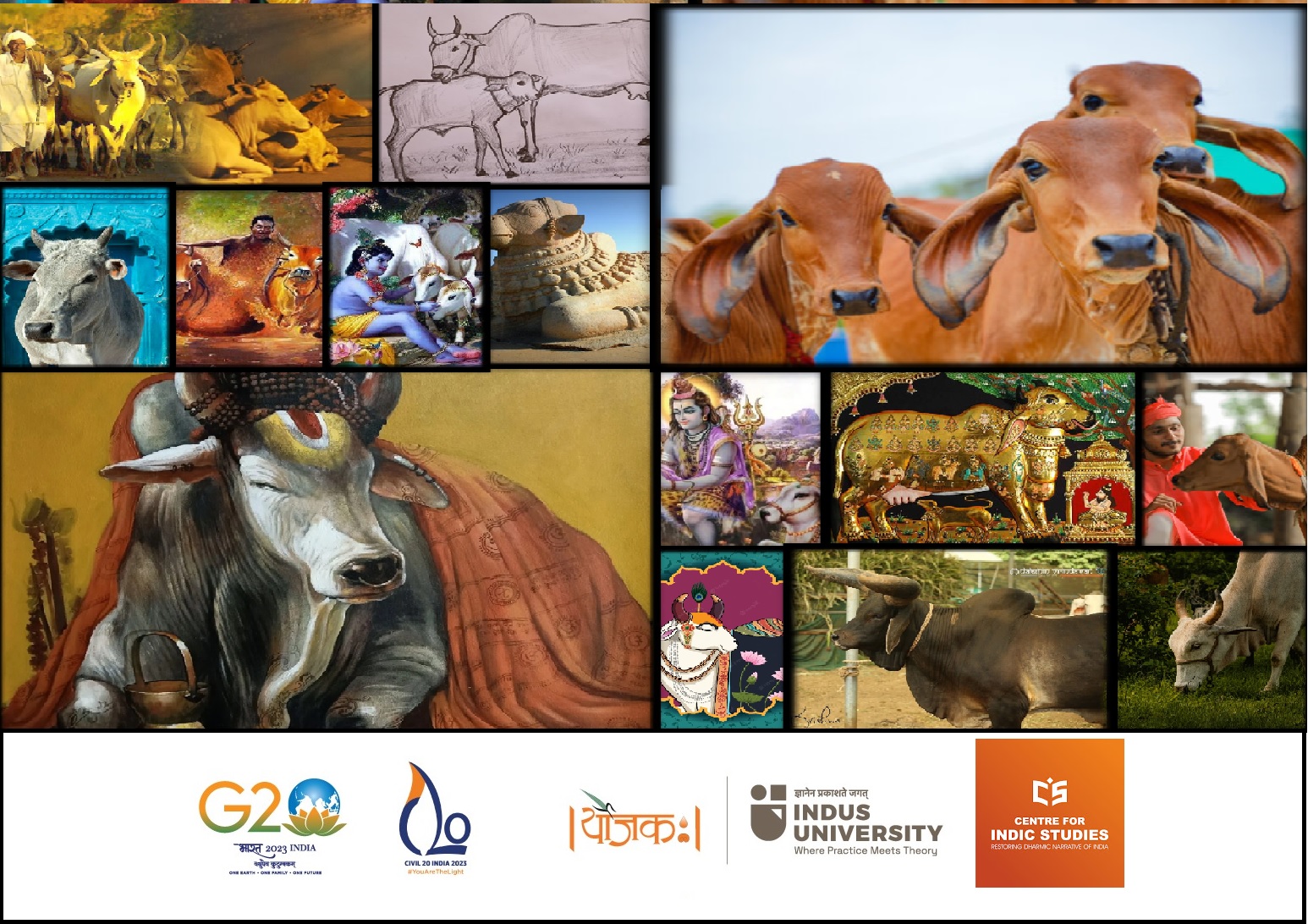- Visitor:27
- Published on:
Does Pre-Linguistic Meaning Exist?
The division of language based on its articulatory character is the division only of audible language. But the audible language is a very late development in evolution.

Name (word) is only a medium for knowledge, helping it to reach at things. Things being totally foreign to the nature of knowledge cannot be directly known. Knowledge cannot come in direct contact with things. It takes the help of words to get at things. Word unites knowledge with things.
This position is very fundamental from our point of view. Knowledge is a very wide term to include any and every sort of mental activity. Beginning from the lowest animals to the highest level of development of animality (in man) this position holds good.
Even an earthworm is sensitive to light and touch. It recognizes light as light, not once, but whenever it is presented. If it could not, it would not respond to light in a certain peculiar way. The knowledge of light is there but as knowledge it can never be direct; it must be mediated by words to be effective.
The earthworm must have some concept for light and it recognizes light only through that concept. This concept is always in the form of words and, therefore, if there were no words no concepts could be formed. Consequently, no knowledge of light would have been possible for the earthworm. It is quite immaterial from our point of view whether the word in the earthworm is articulate or inarticulate or whether it is manifest or mental.
What is articulate and what is not depends upon the position of the hearer. English words for example are quite inarticulate to an Indian villager but to an Englishman it is the most articulate language.
Animal speech may be quite articulate to animals and one who can understand this articulatory character of animal language can have knowledge of their language. The cry of birds and the shrieks of animals are articulate and are as good bearers and transporters of meaning and knowledge as human words are.
The division of language based on its articulatory character is the division only of audible language. But the audible language is a very late development in evolution.
Scientists admit that there are words of animals which are beyond our apprehension. They are not audible because they are either too low or too high in pitch. If we do not find any sign of the existence of speech organ in earthworms and such other creatures, we can very well infer the existence of mental language in them. We human beings also do not always think aloud. Words are uttered only to communicate. But as an instrument to knowledge words need not always be uttered. They exist in the mind.
The need for communication transforms this mental word into physical sound. However, for knowledge, whether it is communicated or not, words are the necessary conditions. To attain the status of knowledge there must be some words, manifest or mental.
Thus a word leads to the knowledge of an object. As soon as a word is uttered some knowledge is conveyed from the speaker to the hearer. This verbal knowledge is always the knowledge of the relation between a word and an object traditionally associated with that word. We have called this relation as the meaning of the word and, therefore, the knowledge through words is the knowledge of the meaning of words. This knowledge of the meaning in its turn is the knowledge in the form of words. The reason is, as we have seen, that the knowledge is always associated with words.
Knowledge cannot be without words. Verbal knowledge arises from words, goes to the meaning of words and ends in embodying those words. Words manifest their meaning which is always in the form of words. No knowledge of the meaning is, therefore, ever possible without there being words.
The conception of pre-linguistic meaning widely advocated by modern science is only an illogical representation. In science the linguistic meaning is distinguished from the meaning of things. The meaning of things is ‘largely instinctive’ and the signs of these meanings are adherent to the things signified. It is said that the meaning of things ‘is our name for clues to adoptive movement’. It is identical with motor reaction as we have seen in the case of the sensation of light in earthworms. This is the activistic meaning in the sense that ‘the meaning is something in an act which is selected because it arouses an anticipatory reaction to its sequel’.
This perceptual meaning ‘involves recognition but not revival of past experience’. As an example of this meaning Lloyd Morgan’s experiments with newly hatched chicks is given. A chick after pecking at various caterpillars comes upon the cinnabar caterpillar which has a bitter taste. After repeated impulsive movement of pecking, the tendency is finally inhibited. The markings of the cinnabar have become signs to the chick. The cinnabar is said to have acquired meaning for the chick. This acquired meaning is a name for a cue to an adoptive movement and this is activistic.
If we thoroughly examine this view, we find that the acquiring of the meaning of a thing is nothing more than acquiring the meaning of a word. When we come across something entirely new we cannot pay any attention to its existence and can never acquire any meaning of it unless we are acquainted with it. When it is repeatedly presented we get a name (whether conventional or invented) for the thing and thus acquire the meaning of that thing. This associating of a word with a thing is to encircle the thing in the net of words so that it may be helpful for our knowledge. We tame a wild thing in the cage of words. As long as a thing is not associated with a word it can never acquire a meaning and can never be recognized.
In the example of newly hatched chicks the acquiring of the meaning of the markings of the cinnabar is acquiring a name for those markings in the vocabulary of the chick. It probably associates a particular shriek with the cinnabar. The chick must have some language to know that particular insect as meaning bitter taste. It recognizes that insect having certain markings, as having a bitter taste only because it has some concept for it and the concept is nothing other than words themselves. The chick has got some verbal pattern, a specific shriek in its mind for that.
The fact that the word is conceptual is enough to refute the existence of pre-linguistic meaning. But if by language only the historical language is meant and not the metaphysical language we have no quarrel over that an in that sense we are ready to admit the existence of pre-linguistic meaning. But we shall try to show in the next section that language primarily means the metaphysical language and only secondarily it means historical language.
But it is clear that the meaning in the above mentioned example is not totally activistic. It is as much activistic as it is linguistic. The contention that the perceptual meaning involves recognition and not the revival of past experience is baseless. The chick recognizes that caterpillar as cinnabar.
It may be asked here ‘what is the basis of this recognition?’ Recognition is the process of discovering a thing as falling in the accumulated past experience of a person. It must, therefore, be based on some cue and that is provided only by the revival of past experience. Recognition is possible only when the whole experience associated with it in the past is revived. If the past experience is not revived recognition will not be recognition but only a presentation of an entirely new fact.
If the earthworm does not recall that light is conducive for it as it was in the past, it cannot know the light as light. Every experience of light for it would be a new experience if it is not associated with the revival of past experience. This revival is the revival of the concept of light in the mind of the earthworm and surely this concept is nothing different from words.
In animals there may not be any explicit sign of a language in the sense of historical language but the necessity of supposing a conceptual language cannot be denied.
We emphatically maintain that no knowledge is ever possible without involving some word.
[Source: R C Pandeya, The Problem of Meaning in Indian Philosophy, (New Delhi: Motilal Banarsidass, 1963), pp. 29-32]
Center for Indic Studies is now on Telegram. For regular updates on Indic Varta, Indic Talks and Indic Courses at CIS, please subscribe to our telegram channel !
- 13 min read
- 0
- 0










